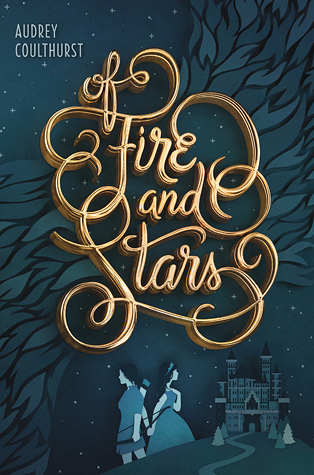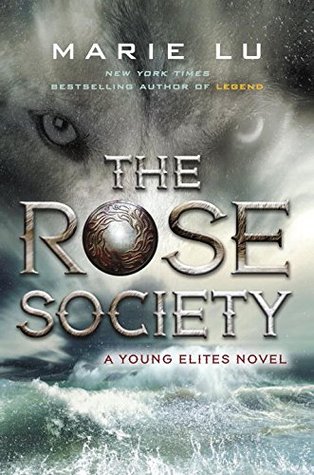Saturday, October 22, 2016
Review: Wanderlost by Jen Malone
Title: Wanderlost
Author: Jen Malone
Rating: 2 Stars
I received an ARC of Wanderlost a few months ago and, after sampling a few chapters, I completely wrote this book off. Aubree, the protagonist, was a tad too immature and whiny for me to handle and her voice simply didn't speak to me. But when the raving reviews of Wanderlost began to flood in closer and closer to its release date, I dug out my ARC again and resolved to give this novel another try, with an open mind.
Well, it turns out my first instincts are spot-on. Wanderlost didn't improve much for me past those first few chapters and while I found redeeming qualities, certainly, this isn't a novel I would recommend. In fact, do yourself a favor a buy a copy of Kristen Hubbard's Wanderlove instead--similar title, relatively similar premises, but a much stronger plot and romance.
My number one issue with Wanderlost was Aubree. Elizabeth, Aubree's older sister, is whip-smart and determined--she always gets her way and she doesn't let anything stop her. When Aubree throws a party with underage drinking and Elizabeth covers for her, Elizabeth is arrested and can't leave the country to lead a tour around Europe as planned. Since Aubree now owes her, big time, Aubree takes her place and leaves her small town, for the first time, terrified to be traveling to Europe. Aubree is so ungrateful. I won't deny that Elizabeth isn't the most supportive older sister, but Aubree refuses to see the opportunity in front of her eyes. I found her inner monologues so frustrating and wanted her to open up, see eye-to-eye with her sister, and seize this experience.
Aubree gets there--eventually!--but it takes so very long and I found myself unimpressed by her growth arc. The tour itself is cute, with six elderly men and women and Sam, a sophomore in college who is added onto the tour last-minute to help his grandmother with her elbow injury. Sam is downright adorable and it's hard not to fall for him. Why he fell for Aubree? A mystery. Their romance didn't make me swoon in the least and the matchmaking going on between the grandmothers and grandfathers on this tour made me roll my eyes. It was so very cliche.
I appreciate that Malone really does develop Aubree and Elizabeth's relationship over the course of this novel and, what's more, she tries to add facts about different European cities. It doesn't feel atmospheric and the prose is unremarkable but it's easy to forgive that with Sam around. But, this novel fell so short of being wonderful for me. I wanted Aubree to really grow and change on her own but it felt as if so much of her opening up was due to Sam. And that isn't a bad thing, but I wanted more of her individual growth, too. And, perhaps I was comparing this too much to Just One Day and Wanderlove. (The latter, especially, features a 17-year-old girl on a tour in a foreign country for the first time, traveling alone, so the similarities were inevitable.)
Wanderlost isn't exceptional, new, or ground-breaking. It's a quick, simple read that will make you smile. The conflict isn't anxiety-inducing and though there was a particular plot point that surprised me quite a bit towards the end, this book is exactly what you imagine it will be--sadly, nothing more.
Tuesday, October 18, 2016
ARC Review: Of Fire and Stars by Audrey Coulthurst
Title: Of Fire and Stars
Author: Audrey Coulthurst
Rating: 2.5 Stars
Release Date: November 22nd, 2016
I want nothing more than to have the future of fantasy fiction become well-worn stories with women marrying women or men marrying men. I love the fantasy genre and I especially adore that Coulthurst is among the first to write YA LGBTQIA fantasy. But, sadly, I am disappointed to report that Of Fire and Stars is a novel I would recommend skipping, despite the female romance at its core.
For me, one of the main issues with Of Fire and Stars is how completely it throws the reader into its world. We are given no prior knowledge of world-building or character background before cutting straight to Denna's arrival in Mynaria as she prepares to marry Thandi, the prince she has been betrothed to since birth. Denna has had an affinity for fire magic since she was young and though Thandi and his people revile magic, she hopes to keep her abilities a secret for the rest of her life and successfully fulfill her duty to marry the prince and bring an alliance between their two reasons.
Why Mynaria hates magic is a mystery, as is the history of these nations which, very quickly, are upon the bring of war with another small country. Coulthurst tries too hard to create an intriguing political situation but she belittles her audience, failing to give them an adequate backstory or write a unique culture for any of these countries, with the exception of their stance on magic. Thus, the entirety of this novel feels...lacking. It is impossible to get a true grasp of the plot without solid world-building and though the reader becomes accustomed to switching between Denna and Mare, our two narrators, a little more backstory for both heroines would have been useful.
Speaking of Denna and Mare, I will admit that their romance is satisfactory. It is a slow-burn, classic hate-to-love tale and I enjoyed reading of their growing attraction and friendship. However, once again returning to the lack of world-building, neither Denna nor Mare fully explain why they cannot be together. It isn't forbidden to take on lovers or even marry within the same sex in this world but why Denna and Mare cannot form an alliance, instead of Denna and Thandi, is rather puzzling. While I greatly appreciated the fact that sexuality is so fluid in this novel and many of the characters are bisexual, I almost wonder if all of the characters are bisexual until proven otherwise. And while I have nothing wrong that assumption, it almost seems just as dangerous as the assumption that everyone is heterosexual. It fails to account for sexual diversity in a novel that seems as if it must do that, if nothing else.
Another disappointment, for me, is that at times these characters seem incredibly juvenile. And ignorant, perhaps? Both Denna and Mare have grown up in societies where homosexuality is normal yet they ignore their feelings for one another, passing it off as friendship, for most of the novel. While I find this to be realistic in a society where homosexuality is not accepted, I found it confusing in the society Coulthurst created. I find that this is an increasing issue with YA fantasy, in fact--a fantastical, fictional setting often means that issues that plague our world are non-issues within the novel. But I want fantasy to reflect messages and themes that we can learn from in our own worlds, despite the lack of magic, and Of Fire and Stars rather fails on that account.
I will not deny that this novel is fast-paced and entertaining. There are plot twists, sudden deaths, and of course the secrets of Denna's magic. Her blooming romance with Mare is exciting and their clash of wills, especially the manner in which they change one another, is rewarding. I enjoy both of these heroines, individually and together, but the world they've been placed in makes little sense and raises more questions than it answers. For a debut, this shows promise, certainly, but I hope for YA fantasy with LGBTQIA heroines where the plot is just as good as the romance and the diversity is not limited to that of sexual diversity. We have a long way to go in creating diverse, well-written novels but Coulthurst's debut is certainly an important first step in that direction.
Thursday, October 13, 2016
Review: Cam Girl by Leah Raeder
Title: Cam Girl
Author: Leah Raeder
Rating: 4 Stars
I never know what to say about a Leah Raeder novel. It made me uncomfortable. It was difficult to read because I kept wanting to stop, to leave these messy, unlikable characters with their dark flaws in the pages of the book. It made me think, late into the night, unable to make sense of myself, the characters, or the world. And all of these are good. It is so rare to find a book that makes me reflect, that forces me to take a long time anguishing over the language, that genuinely shoves me outside of my comfort zone.
I both love and hate Raeder for her ability to do this; I relate to aspects of her novels, always, but I always want them to be a little less dark and messy and them so they can fit into the tropes I know and am comfortable with. I am so very glad that Raeder does not do this disservice. Not to me and not to her readers. She writes the stories she wants to write--the stories she wishes were being told--and I applaud her for that. Plus, her prose is gorgeous and the topics she tackles are hard-hitting and challenging to understand and discuss in a complex manner, which she always manages to do. It's so rare to see queer characters--those who identify along the spectrum of "queer" and do not always fit into the categories of LGBT but rather LGBTQIA--and I am so grateful that Raeder writes the diverse stories she does.
This doesn't mean that I loved Cam Girl without reservation or would even read it again--I wouldn't--but it does mean that it made me re-consider a wide range of topics I simply hadn't spent too much time thinking about. Whether it be gender, sexuality, or the sex trade, Raeder covers so much in this novel--densely packing it with meaning and feeling--and I can't really describe or fully discuss it without ruining the story. Raeder almost has too much going on--Vada, the main character loses function of her right hand in a car accident, disabling her for life and ending the career she thought she had as an artist. But Vada is also in love with her best friend, Ellis, yet she clings on to the hope of a future where she marries a man. And then Vada and Ellis have a falling out--over Vada, the accident, the true story of that night--and Vada is approached by two young entrepreneurs to cam for them. From there, the story only gets more complicated--Vada's empowerment and agency through her role as a cam girl, her feelings for Ellis which won't abate, her involvement with Max, the father of the boy who was killed the night of the accident, and then her late-night chats with "Blue" who pays her for her time and thoughts, not her camming skills.
It's intense, it's messy, and I wish Raeder had taken on a little less, only so that I could fully wrap my mind around it all. But, it works. It definitely works and its message is strong, beautiful, and full of hope. Needless to say, for readers familiar with Raeder's work and her brand of dark--as in mentally, emotionally dark, going to places you won't be familiar with, necessarily--and fans of Black Iris, Raeder's latest is definitely up your alley. I'd suggest readers new to Raeder's work to pick up Unteachable first--it's the most heteronormative and familiar of her works to other New Adult tropes--but if you're looking for New Adult that explores disability and difficult topics of LGBTQIA then this is a must-read. I don't look forward, necessarily, to what Raeder is putting out next but I'm eager to pick up yet another thought-provoking, emotional read by her.
I just want to add a quick note that I am aware that Leah Raeder now goes by the name Elliot Wake and that Elliot also now uses the pronouns he/him/his. However, when I wrote this review it was before Leah had begun publishing books under the name Elliot, hence the different pronouns/names in this review. I mean absolutely no disrespect to Elliot Wake but as Elliot has continued to use his previous name on the covers of his older titles, I assumed it would be alright to use the name Leah and the pronouns she/her/hers, as when I wrote this review. If anyone knows otherwise, let me know and I will absolutely change it.
Friday, October 7, 2016
Review: The Rose Society by Marie Lu
Title: The Rose Society (The Young Elites, #2)
Author: Marie Lu
Rating: 4.5 Stars
Holy. Shit. What did I just read? The Rose Society is dark, twisted, and completely unpredictable. It takes more political turns than its predecessor did, but Adelina--our heroine turned quasi-villain--remains at the core of this novel. In The Young Elites Adelina tries to please those closest to her, whether they be her father or sister or The Daggers, a group of Elites who take her in and save her. After being betrayed by everyone, though, Adelina gives herself over to the darkness. She forms her own group of Elites, The Roses, and sets out to recruit the best alongside her sister, Violetta, who she convinces herself to trust. But in her quest to overturn the Inquisition and exact her revenge, Adelina slowly turns darker and darker, losing parts of herself within her power.
I found The Rose Society to be scintillating from start to finish. We have Adelina, who seeks Magiano, the elusive Elite whose powers are legendary but no one knows how to find. We have Raffaele and the Daggers, who align themselves with the Beldish Queen, Maeve, and her dangerous abilities. And then we have Teren, still by the side of the Queen but whose visions for the future are beginning to veer drastically away from his Queen's plans. These three story lines converge seamlessly throughout the novel, leaving us swimming in a sea of lies, betrayals, and ultimately plot twists--Lu just doesn't disappoint.
The character development in this middle novel is on par with the unpredictable plot line. Adelina, of course, is still battling with her power and discovering new aspects to it at every turn. Violetta really comes into her own in this novel, emerging from Adelina's memories and becoming a character who has her own flaws, agenda, and strengths. We learn much more about the pasts of Raffaele and Lucent, two of the Daggers, and I loved getting that closer insight into these two characters who play really fascinating roles in this story. Maeve, the Beldish Queen is someone who I am still not quite sure I know, fully, but I'm glad we were introduced to her and I want, very much, to see her play a larger role in the finale. Teren becomes less of a villain and more of an obsessed, deranged human being in this one, but it humanizes him, strangely. And then there's Magiano; mysterious, clever, and powerful. He's the opposite of Enzo in so many ways and I loved this rogue thief, especially his light-hearted nature and how he inspires Adelina. Lu does a fantastic job of balancing the darker and lighter characters together so that the darkness in this tale never becomes overwhelming. Plus, there are a whole host of even more new characters--and old ones--who we come across in this novel and I really enjoyed traveling to different parts of this world and observing the changes in culture and politics and how that affected the characters from those parts of the world. This fantasy has really become global and I love nothing more than this type of all-encompassing world-building.
The romance in this series has always been a little...doubtful, I guess I'd say. I wasn't ever sold on Enzo and Adelina's romance in The Young Elites, perhaps because I was more sold on their connection and the fact that they were using each other for their own emotional gain than any true love that lay between them. I do, however, believe that there is a strong, hopeful romance introduced in The Rose Society but it very much takes a backseat to the politics in this story. I think the romance will be important in the finale but, so far, this has proven to be a character-driven storyline more than a romantically-driven one.
I am thoroughly looking forward to the finale in this explosive, wonderful series. Lu has created a heroine who isn't always likable, a world that is complex and intriguing, and she keeps throwing plot twists our way. I have no idea where the future of this tale lies but I am confident that it is in good hands. If you're as fed-up of the fantasy-lite sweep that has infected YA lately, then The Rose Society will cure you. It's fantasy at its best, but it's also YA at its finest. Without a doubt, this dark, strange middle book is a favorite for the year.
Subscribe to:
Comments (Atom)




